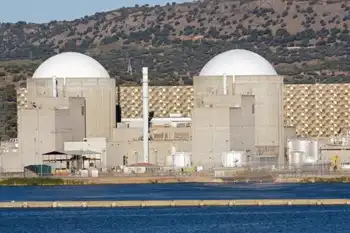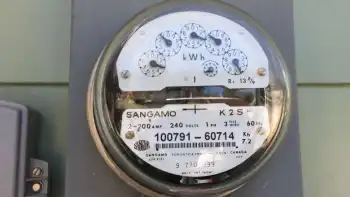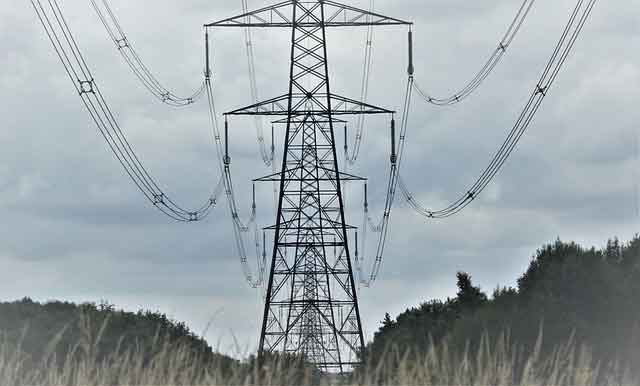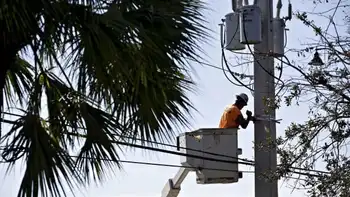Committee chair sets high carbon reduction goal
By Reuters
Arc Flash Training CSA Z462 - Electrical Safety Essentials
Our customized live online or in‑person group training can be delivered to your staff at your location.

- Live Online
- 6 hours Instructor-led
- Group Training Available
The legislation by House Energy and Commerce Committee Chairman Henry Waxman would require that U.S. carbon emissions be reduced by 20 percent from 2005 levels by the year 2020, 42 percent by 2030 and 83 percent by 2050, according to House Democratic aides who asked not to be identified.
The U.S. "cap and trade" emission control regime would not begin to take effect until 2012, when a 3 percent reduction from 2005 levels would be required, the aides said.
Obama has asked Congress for legislation that would bring reductions of around 15 percent by 2020 and over 80 percent by 2050. Waxman just unveiled his draft legislation.
Under its cap and trade plan, the Obama administration has proposed raising $646 billion by selling permits to power plants, oil refineries and other industrial facilities that would limit the greenhouse gases they could emit. Some of the money would go back to consumers to help them pay for higher energy costs, as well as supporting alternative energy initiatives.
Waxman, a California Democrat, hopes to get his bill, with some revisions, passed by the panel by the end of May as part of a push by the majority Democrats in Congress to enact this major Obama initiative this year or next.
But several other House panels also will have to review the controversial legislation before the full House could vote. The bill must also be passed by the Senate before Obama can sign it into law.
Other key provisions to be included in Waxman's bill, which will be a starting point for writing climate control legislation in the House this year, include, according to the aides:
• 25 percent of the country's electricity supply would have to come from renewable sources, such as solar and wind, by 2025;
• still to be determined is the percentage of polluting permits under the cap and trade system that would be auctioned to industry versus how much might be given to those firms;
• utilities would be encouraged to reduce electricity consumption by 15 percent by 2020 and 10 percent for natural gas by 2020;
• the Waxman measure would cover 85 percent of total U.S. emissions of carbon dioxide and other pollutants that scientists have linked to global warming.
Many Republicans are expected to oppose any climate change bill Democrats advance, claiming the initiative would significantly increase consumers' energy costs as the country is trying to climb out of a steep economic recession.
Senate Republican leader Mitch McConnell said Obama's climate control ideas would cost households $3,100 a year "just for doing the same things people have always done, like turning on the lights and doing laundry."
But Democrats are also expected to include provisions that would try to ease the impact on consumers, possibly with some form of tax rebate, especially for the poor.
Obama and Democrats in Congress are arguing that tackling climate change will have benefits beyond helping the environment, such as creating new jobs in the energy sector and reducing U.S. reliance on foreign oil.
Industry and environmental groups have received briefings on Waxman's plans. Their support will be vital to any legislation being enacted.
Waxman's draft plan will "follow very closely" the climate change goals of the U.S. Climate Action Partnership, a coalition of key corporate and environmental groups, one of the House aides said.
Representative Chris Van Hollen, a member of the House Democratic leadership who is active on climate control legislation, said it is too soon to know whether cap and trade legislation will be signed into law this year.
"I think it's... too early to predict whether you're going to see final passage, but what you are going to see for sure is a very serious effort," Van Hollen told Reuters. "I think you're going to see substantial progress and very possibly see some legislation emerge at least from the House."











